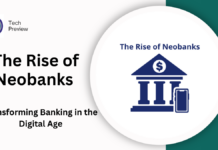Introduction
In recent years, the world has witnessed the rapid rise of cryptocurrencies, with Bitcoin leading the way as the pioneer digital currency. As the popularity and acceptance of cryptocurrencies grow, the question on everyone’s mind is whether they have the potential to replace fiat currency altogether. This article delves into the possible future of crypto as a medium of exchange, exploring its advantages, challenges, and the role of platforms in shaping this emerging landscape.

A Glimpse into the World of Online Platform
A leading online trading platform, has been at the forefront of enabling individuals to access and participate in the world of cryptocurrencies. With its user-friendly interface and sophisticated trading tools, the platform has contributed to the widespread adoption of digital assets, serving as a gateway for both seasoned investors and newcomers alike. The platform’s success reflects the growing interest in cryptocurrencies and the potential they hold as a medium of exchange.
Cryptocurrencies: The Advantages and Potential
Decentralization and Trustless Transactions
One of the key advantages of cryptocurrencies is their decentralized nature, which means they operate without the need for intermediaries like banks or financial institutions. Transactions occur directly between users through blockchain technology, ensuring transparency and reducing the risk of fraud or manipulation. This feature empowers individuals with more control over their finances, enhancing financial inclusion across the globe.
Lower Transaction Fees and Faster Settlements
Traditional banking systems often impose substantial transaction fees, especially for cross-border transfers. Cryptocurrencies, on the other hand, offer significantly lower fees, making them an attractive option for international transactions. Additionally, the near-instant settlement times of certain cryptocurrencies provide a much faster alternative to the traditional banking system’s processing delays.
Accessibility and Financial Inclusion
Cryptocurrencies have the potential to bridge the gap between the banked and unbanked populations. In many developing regions, access to traditional banking services remains limited, leaving a significant portion of the population excluded from the global economy. Crypto platforms offer a way for these individuals to participate in the digital financial ecosystem, opening doors to economic opportunities and financial empowerment.
Challenges on the Road to Crypto Adoption
Volatility and Price Fluctuations
One of the most significant challenges facing cryptocurrencies is their inherent volatility. Prices of digital assets can experience extreme fluctuations within a short period, making them a risky choice for everyday transactions. Stablecoins, pegged to fiat currencies, have emerged as a possible solution to mitigate this issue. However, widespread adoption of stablecoins and resolving other price stability concerns will be crucial for their integration into everyday transactions.
Regulatory Hurdles
As cryptocurrencies have gained popularity, governments and financial regulators worldwide have grappled with developing appropriate frameworks to govern these digital assets. Uncertainty surrounding the legal status of cryptocurrencies and the varying regulatory landscape in different countries can hinder their acceptance as a widely recognized medium of exchange. Establishing clear and consistent regulations will be crucial to foster mainstream adoption.
Scalability and Network Congestion
As the user base of cryptocurrencies expands, concerns about the scalability and congestion of blockchain networks have arisen. Major cryptocurrencies like Bitcoin and Ethereum have faced challenges in processing a large number of transactions simultaneously, leading to slower confirmation times and higher transaction fees during peak periods. Scaling solutions and ongoing network upgrades will be essential to address these issues.
The Coexistence of Crypto and Fiat Currency
While cryptocurrencies hold great promise as a medium of exchange, it is unlikely that they will entirely replace fiat currency in the near future. Instead, a more probable scenario involves the coexistence of both systems, with cryptocurrencies complementing traditional fiat currencies. Cryptocurrencies may find their niche in specific use cases, such as cross-border remittances, micropayments, and as a hedge against economic instability.
Conclusion
As the world continues to embrace digital innovation, cryptocurrencies have emerged as a disruptive force in the financial realm. The growth of platforms demonstrates the growing interest in digital assets as a medium of exchange. While cryptocurrencies offer numerous advantages over fiat currency, they still face significant challenges that need to be addressed to achieve mainstream adoption. As the technology matures and regulatory clarity improves, the future of crypto as a medium of exchange holds great potential, promising a more inclusive, efficient, and decentralized financial landscape.









